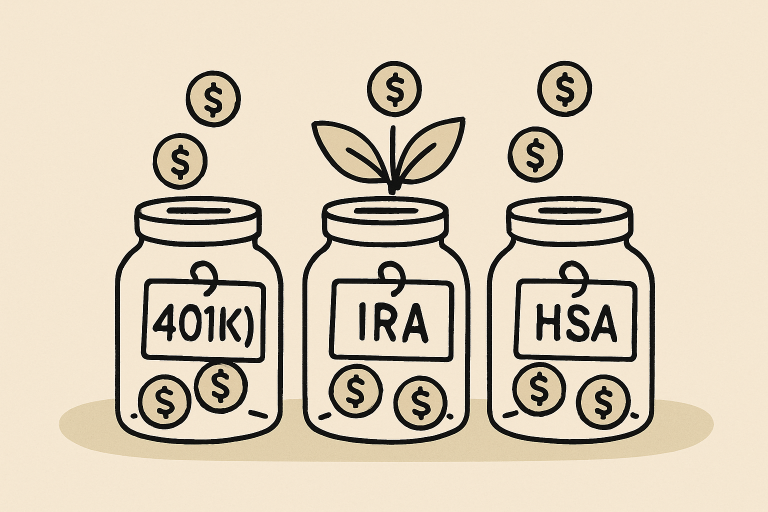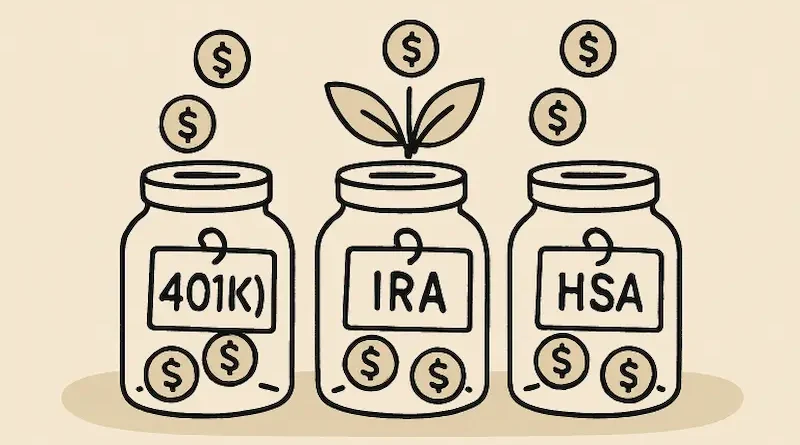Building Financial Security with Tax-Advantaged Strategies for Long-Term Savings
Securing a stable financial future demands more than just diligent saving—it calls for a proactive approach that blends tax-smart strategies with prudent investment decisions. One of the most effective ways to achieve financial confidence is by leveraging tax-advantaged accounts and investments designed to give you more control and protection over your wealth. When managed wisely, these strategies can set the stage for ongoing security later in life, ensuring your resources grow efficiently while shielding earnings from unnecessary taxation.
Comprehensive tax planning empowers you to stretch every dollar further, guiding your money towards growth and compounding without constant erosion by taxes. With timely rebalancing and trusted professional guidance, you can construct a robust blueprint for achieving your most important long-term goals, such as retirement, education funding, or a lasting family legacy.
Understanding Tax-Advantaged Accounts
Tax-advantaged accounts are essential tools for wealth-building, providing immediate or long-term tax relief. The three most common types are 401(k) Plans, Individual Retirement Accounts (IRAs), and Health Savings Accounts (HSAs). 401(k) Plans allow pre-tax contributions, reducing taxable income today and growing investments tax-deferred until withdrawal. IRAs offer tax-deferred growth with taxes paid upon withdrawal in retirement, while Roth IRAs provide tax-free withdrawals if certain conditions are met.
HSAs offer triple tax advantages, including tax-deductible contributions, tax-free growth, and tax-free withdrawals for qualified medical expenses. Maximizing contributions to these accounts can accelerate the journey to financial stability. In 2025, individuals under 50 can save up to $23,500 in a 401(k) and $6,500 in an IRA, with higher limits available for those aged 50 and above.

Strategic Asset Allocation
An intelligent asset allocation strategy is crucial for maintaining a balanced, resilient portfolio. It involves diversifying across asset classes like equities, fixed income, and real estate to mitigate market volatility and optimize returns. Key elements for successful allocation include risk tolerance, investment horizon, and tax implications.
Assigning tax-inefficient investments to tax-advantaged accounts allows for more tax-efficient vehicles, such as index funds, in the taxable portfolio. For example, holding high-yield, dividend-paying stocks within a Roth IRA allows dividends to grow and compound without tax obligations, boosting the effective rate of return over time.
Tax-Efficient Investment Vehicles
Selecting tax-efficient investment vehicles can significantly impact after-tax returns. Focusing on products that produce minimal taxable events can preserve more capital. Consider incorporating municipal bonds, index funds, and tax-managed funds into your portfolio.
Municipal bonds are tax-advantaged, as their interest is exempt from federal and state taxes. Index funds and ETFs have a passive management style, generating fewer capital gains distributions and lower potential taxes. Tax-managed funds, designed to limit taxable events through tax-loss harvesting and strategic trading, align to improve after-tax outcomes.
Regular Portfolio Reviews and Rebalancing
Regular portfolio review is crucial for maintaining a functional and tax-savvy investment plan. Market dynamics, personal circumstances, and tax laws can shift your ideal allocation or present new savings opportunities. To maintain a balanced portfolio, assess performance by identifying lagging assets, rebalancing assets to maintain target allocation and risk level, and harvesting gains or taking advantage of tax-saving opportunities. Additionally, tax-loss harvesting should be considered when selling underperforming securities to offset realized capital gains. These reviews ensure your portfolio’s performance aligns with life objectives and maximizes tax relief.
Consulting Financial Professionals
A financial advisor or tax specialist can significantly improve your financial management. They analyze your financial situation and create tailored strategies to your goals. Key benefits include comprehensive financial planning, tax planning, and estate planning.
These professionals integrate tax-saving strategies into a larger financial picture, identify opportunities to reduce tax liabilities, and structure assets for optimal tax efficiency. Trusting these professionals enhances your chances of achieving long-term financial security. Using tax-advantaged strategies, careful investment selection, and ongoing portfolio oversight, you can build a durable financial foundation to achieve long-term savings goals and enjoy a secure future.
Visit the rest of the site for more interesting and useful articles.

